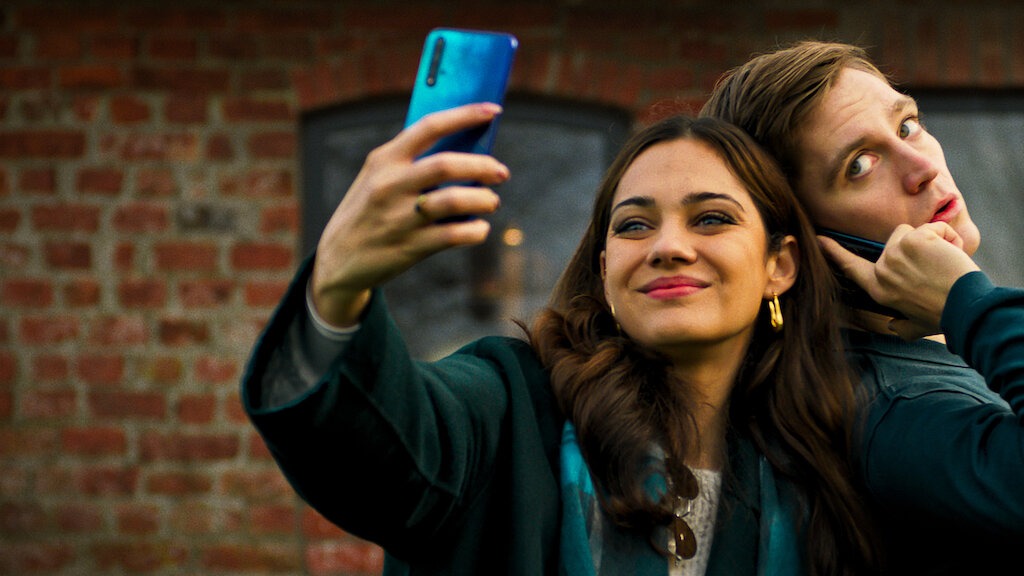The Four of Us movie review: This Netflix comedy is a fresh, engaging take on modern relationships
With delightful performances from the cast, the movie touches upon pertinent issues plaguing modern day couples, without taking itself too seriously,
Oct 15, 2021

A still from The Four of Us
The Four of Us
Story: Right after a month-long partner-swapping experiment, two couples – Nils, Janina, Ben and Maria – arrive at a beach house to talk about their experiences. Soon, they find out that one couple had broken the rules of the experiment and this drives all four friends to re-evaluate their feelings for each other, their past and expectations.
Review: Soon after Janina, a social media influencer and reporter, finds out that her partner Ben and her friend Maria had broken the only rule that she had set while initiating an experiment to swap partners, she breaks down and wishes for one thing – to look Ben in the eyes for four minutes, probably in a bid to communicate their feelings for each other without words. It might sound ridiculous, but how director Florian Gottschick has shot this particular sequence – along with montages of each character and music – conveys exactly what Janina wanted. There’s an outpouring of emotions, till all of them are rudely awakened.
In a way, the sequence summarises the ebb and flow of this German comedy, which touches upon several pertinent questions, but never quite follows up on them as it doesn’t quite take itself seriously. And that’s what works too in its favour.

The movie revolves around two couples – Nils (Jonas Nay) and Maria (Paula Kalenberg) and Ben (Louis Nitsche) and Janina (Nilam Farooq). After a four-week partner-swapping experiment, all four reach a beach house to explain what they have learnt from their experience. Things, however, take a turn after Ben and Maria, hesitantly reveal they have fallen for each other, and broke the only rule in the experiment. What follows is a sequence of discussions over a day, as the relationship dynamics between each of them is tested and they are forced to re-evaluate their feelings for each other and their expectations.
There are movies like Carnage, which again revolves around two couples, that use conversations over the table to unravel the relationships. What Carnage did well was to introduce a core grievance and then dig into it. The Four of Us, however, steers clear of this tactic. This is the film’s strength as well as its Achilles Heel because instead of countering and conquering the problem in a relationship, the movie quickly flits to the next issue after a clever banter, an acid reflux or a joke. What it does accomplish is that it manages to touch upon several issues in its limited screen time, all the while also unmasking one or two layers of its ambitious characters.
Nils, played by Jonas Nay, is probably the one that benefits the most out of it – story wise as well as in character development. He starts off as a callous and sarcastic individual, but soon grows on you once you discover why he's always at work. In fact, a classic sequence has him answering a call while the other three are in the middle of an emotional turmoil, and telling the caller that he would e-mail him in two minutes. The other three are allowed to respond only after he send out the mail.
Louis Nitsche as the failed actor Ben, who is grappling with several issues stemming from his previous girlfriend to his body, also drives a chunk of the narrative. While Janina’s advances and emotional manipulation make sense at the end, Paula Kalenberg’s character Maria doesn’t get her due. Janina's social media obsession is also driven by her ambition, and this also becomes a fodder for the discord between her and Ben, who is struggling for work.
The film is also peppered with instances where the audience is led to empathise with one character, before a fresh set of truths is unleashed that turns the table against them. This again makes The Four of Us fun to watch, as the surprises keep on coming.
Considering that the pandemic and restrictions has led to several films that are shot indoors with just a limited cast and crew, The Four of Us never quite feel like that despite being set predominantly in a beach house. Florian’s way of storytelling of not delving too deep into the core issues also mirror the attention that today’s relationships sometimes get.
Verdict: From talking about polygamy, bisexuality, couple swapping to a relationship with the Internet and being childfree, the movie offers a fresh take on modern-day relationships. It also serves up some delightful laughs along the way.
Share
Cast and Crew
Where To Watch
